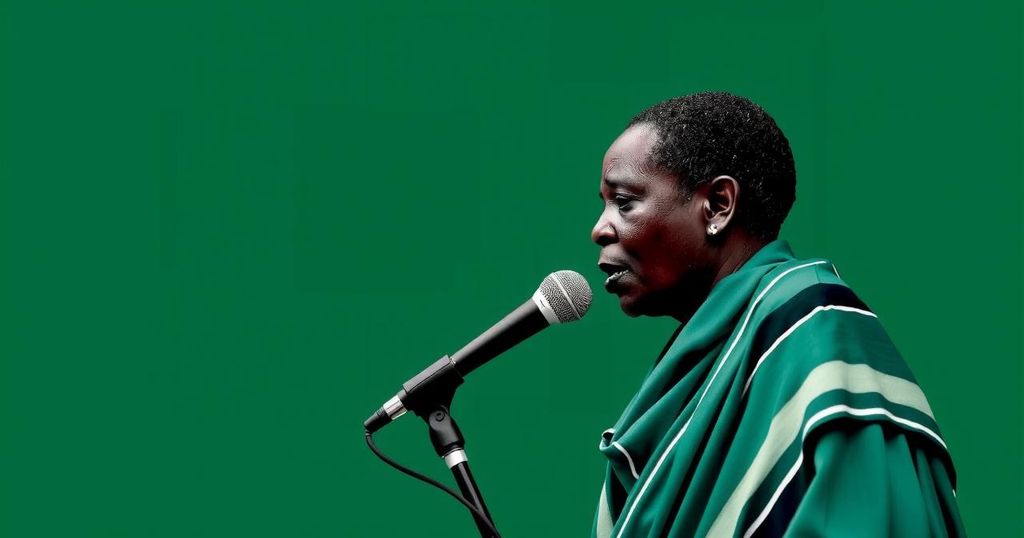Abyei Calls for Self-Rule as Sudan Conflict Thwarts Referendum

Leaders of the Dinka Ngok in Abyei are demanding self-rule due to the ongoing conflict in Sudan that hinders a referendum on the region’s future. They seek international support for self-governance until a resolution can be reached between Sudan and South Sudan. Their rights to self-governance and dual citizenship have been emphasized amid concerns of statelessness and potential violence.
In light of the ongoing conflict in Sudan, leaders from the Dinka Ngok community in Abyei have issued a call for self-governance, emphasizing their need for an interim solution until a referendum can be held to determine the region’s future. This request was articulated in a formal memorandum directed to the United Nations Interim Security Force for Abyei (UNISFA), wherein the Dinka Ngok urged international support for the establishment of self-rule as the prospect for a definitive resolution appears bleak due to persistent discord among the stakeholders involved. According to the 2005 Comprehensive Peace Agreement, Abyei was designated a special status region, promising residents a referendum to decide whether they would affiliate with Sudan or South Sudan. However, the implementation of this referendum has faced significant delays, chiefly over disputes regarding voter eligibility, with particular contention surrounding the participation rights of the nomadic Misseriya tribe. In their memorandum, the Dinka Ngok articulated, “It became increasingly clear that Sudan is resisting the loss of Abyei, and that South Sudan… lacks the capacity or the will to go to war with Sudan over Abyei.” Given the current instability in Sudan and South Sudan’s reluctance to take unilateral military action, the Dinka Ngok community sees limited prospects for a peaceful and swift resolution regarding Abyei’s status. They have expressed concerns that the area, which has already sustained extensive violence over the decades, risks further descent into conflict. The memorandum also details the dire circumstances of statelessness faced by the inhabitants of Abyei, who currently do not benefit from the protection and assistance of a recognized state. It reinforces their claim to self-governance as envisioned in the 2005 peace agreement, which had originally permitted residents of Abyei dual citizenship in both Sudan and South Sudan. However, following South Sudan’s secession and subsequent administrative alterations, this provision has effectively lapsed. Consequently, the Dinka Ngok are now advocating for the recognition of their rights to self-governance and dual citizenship as a viable route to resolving the ongoing stalemate and fostering amicable relations with both nations.
The conflict surrounding Abyei is deeply rooted in the historical complexities of Sudan and South Sudan’s relationship. Following the civil war and subsequent peace agreements, the 2005 Comprehensive Peace Agreement was pivotal in defining the status of Abyei, yet the referendum it promised has remained unrealized. The area has been a flashpoint for tension, with the Dinka Ngok community representing a significant local population advocating for their rights amid ongoing disputes over territorial claims and governance. The continued instability in Sudan exacerbates the situation, complicating the ability of South Sudan to assert control or engage in military action over Abyei, which further intensifies the Dinka Ngok’s push for self-governance.
In conclusion, the leaders of the Dinka Ngok community are vocalizing their claims for self-governance in Abyei amidst the protracted conflict in Sudan, which has postponed the pivotal referendum intended to determine the region’s future. Their plea for international support highlights the urgency of their situation, marked by a lack of recognized statehood and the risk of escalating violence. As negotiations remain stalled, the community asserts their rights as defined in the Comprehensive Peace Agreement, advocating for both self-rule and dual citizenship in order to ensure stability and peace.
Original Source: sudantribune.com








